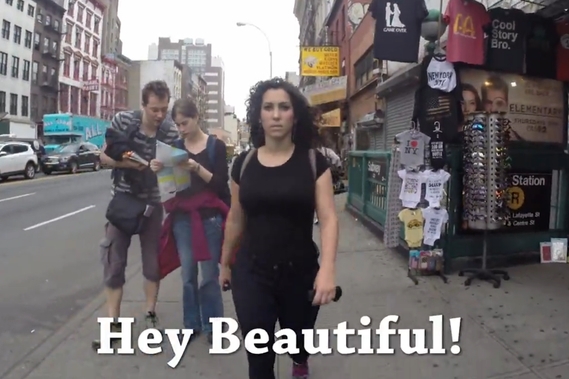‘Seasoned feminist’ Jessica Valenti has written in the Guardian about catcalling and the detrimental effect it is having on her self-esteem as she grows older. Valenti mourns ‘the hellishness of my teen years’, ruined by unsolicited comments from strange men, and feels even more sorry for herself now, a slightly older mother who gets fewer catcalls and feels like she is becoming ‘invisible to men’.
Feminists are never happy: whistle at them, and it’s an act of abusive male entitlement; don’t whistle at them, and you’re ignoring women, treating them as invisible. What are men to do?
Our relationship towards social interaction is changing. Strangers avoid speaking to each other on the street and men just don’t catcall as much as they did 30 years ago. Even if they did, feminists like Valenti forget the difference between words and actions. If a bloke told me he liked my legs, and if I didn’t feel like taking it as a compliment that day, I could easily brush it off with a well-known hand sign or shout back at him.
Valenti’s complaint about having once been catcalled too much and now not being catcalled enough reminded me of an episode of the British hit series Green Wing in which Joanna, the age-obsessed head of office, is so upset by not being catcalled by builders that she strips to the waist in a bid to get their attention.

Get Britain's best politics newsletters
Register to get The Spectator's insight and opinion straight to your inbox. You can then read two free articles each week.
Already a subscriber? Log in







Comments
Join the debate for just £1 a month
Be part of the conversation with other Spectator readers by getting your first three months for £3.
UNLOCK ACCESS Just £1 a monthAlready a subscriber? Log in